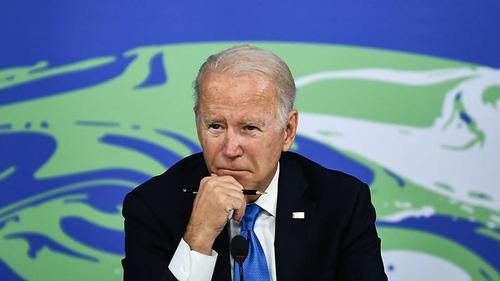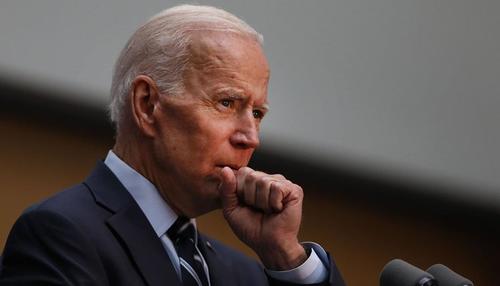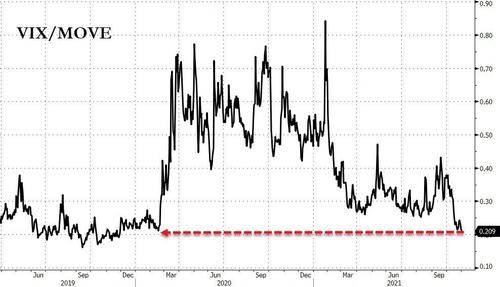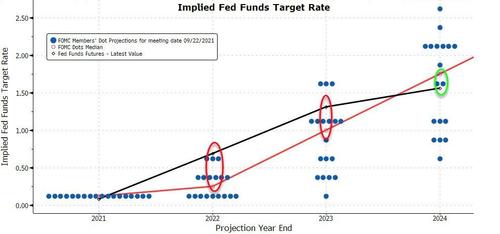
Former Virginia Gov. Terry McAuliffe is running against Republican challenger Glenn Youngkin to get his old job back as governor of the commonwealth. But McAuliffe clearly wishes that he was running against former President Donald Trump.
Indeed, McAuliffe is so eager to tie Youngkin to Trump that when the ex-president failed to appear at any of Youngkin’s campaign rallies, the Democratic candidate simply fabricated a joint event. “Guess how Glenn Youngkin is finishing his campaign?” McAuliffe asked a gathered crowd at his own campaign event Monday night, according to POLITICO. “He is doing an event with Donald Trump here in Virginia.”
This was not true. Trump is not in Virginia and has never come to Virginia to campaign on Youngkin’s behalf. (Trump did hold a last-minute “tele-rally” for Youngkin that did not involve the candidate.)
McAuliffe has by now tried to associate Youngkin with Trump so frequently that Youngkin eventually released a campaign ad in response, making fun of McAuliffe for saying the word Trump so many times.
Trump is the de facto leader of the Republican Party, and very few Republican political figures are willing to denounce him and risk alienating his supporters. (Those who have denounced him were quickly marginalized.) It’s thus fair to make Republicans own that association: Trump is their man, and they have to answer for him.
But if Youngkin has to answer for Trump—someone he has taken great pains to avoid—shouldn’t McAuliffe be held responsible for the company he actively chooses to keep?
McAuliffe is closing out his campaign by elevating a close surrogate on education issues: American Federation of Teachers President Randi Weingarten, an individual who bears more responsibility than anyone else for the U.S. school system’s total abdication of responsibility to families during the COVID-19 pandemic. “When history books are written about why U.S. K-12 schools were more closed than those of any other rich country, Weingarten will be on the cover,” wrote Reason‘s Matt Welch.
McAuliffe recently gave parents the impression that he does not believe they deserve a say over school curriculum; after this proved to be a controversial remark, he half-heartedly tried to walk it back. But Weingarten’s view on the matter is abundantly clear: She recently tweeted a link to an opinion column in The Washington Post titled, “Parents claim they have the right to shape their kids’ school curriculum. They don’t.” Weingarten added the comment: “Great piece on parents’ rights and public schools.”
Great piece on parents' rights and #publicschools. https://t.co/0DMghTjRBN
— Randi Weingarten (@rweingarten) October 25, 2021
By any fair standard, McAuliffe has to own that view, too.
On Twitter, MSNBC’s Chris Hayes writes that he’s intrigued by the salience of “education” issues in the Virginia gubernatorial race, even though the complaints about schools seem to have changed. “A year ago it was going to be all about how schools were still closed!” he tweeted. “Then they opened and it was both masks and” critical race theory.
But there’s a very clear link between the two. Throughout the pandemic, the education system asked working families to make tremendous sacrifices. Teachers expected parents to take a much more involved role in their children’s school routines, ensuring that they turned on their screens and logged into virtual classes, etc. For many parents, this was a significant ask. Some of them did not like what they saw, and have questions about the curriculum. Now schools have reopened—though constant COVID-19 induced closures continue to cause frustrations—and parents are suddenly being told that they shouldn’t be so involved, that it’s the job of school boards and government officials to educate the kids.
Many parents are undoubtedly at their wits’ end. That is why education has become the most important issue in the Virginia governor’s race—and why it was such a mistake for Democrats to ignore irate protesters at school board meetings, or worse, insult them as potential “domestic terrorists.”
McAuliffie recently suggested that he’s proud of the Virginia school system, and strongly implied that he had sent his own kids to the commonwealth’s public schools. “We have a great school system in Virginia, Dorothy and I have raised our five children, of course parents are involved in it,” he said.
Four of McAuliffe’s five children attended private school.
from Latest – Reason.com https://ift.tt/3q0yKFh
via IFTTT







